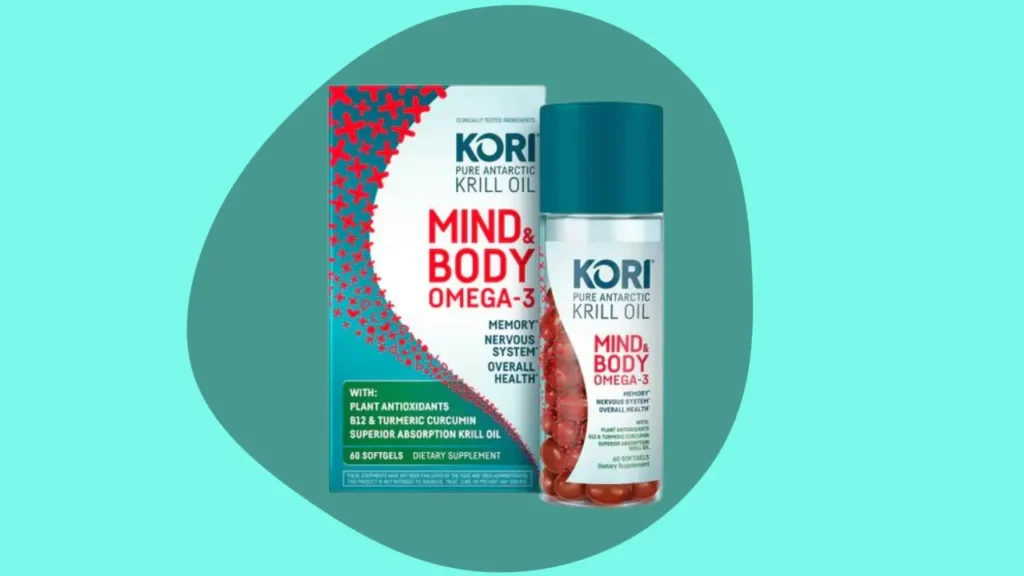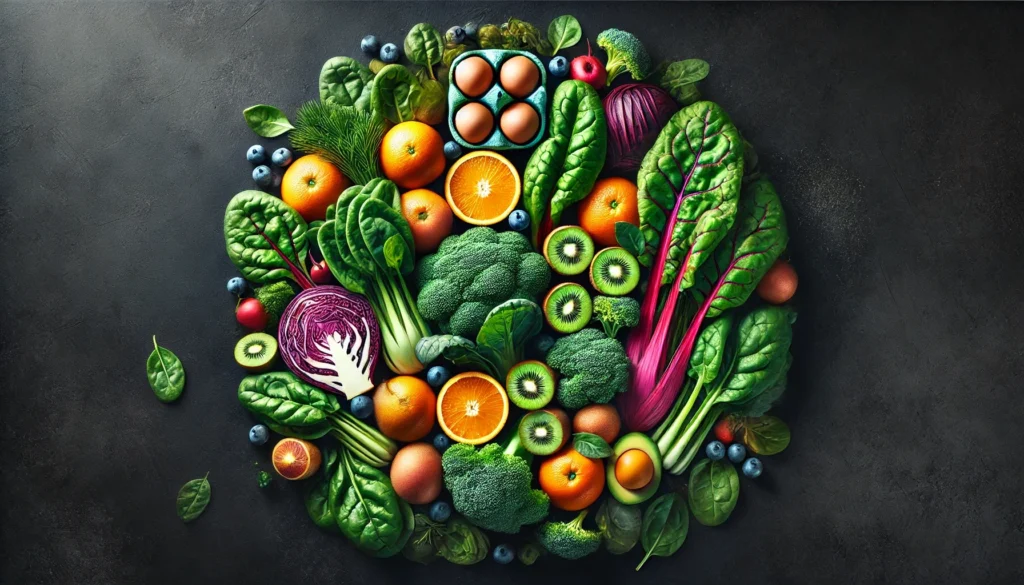A member of the xanthophyll carotenoid family of pigments, lutein is crucial to the process of photosynthesis in plants. This antioxidant is mostly present in colorful fruits and vegetables like oranges and kiwis, as well as leafy greens such as spinach.
Lutein is an important nutrient for humans and an essential part of the plant kingdom. Because of its chemical makeup, it can act as an antioxidant in the body, scavenging dangerous free radicals. However, the body can not naturally produce lutein; thus, consuming it through diet is the only way we can receive its health benefits. Our bodies take in and collect this powerful pigment as we consume lutein-rich foods, assisting us in achieving optimal health from the inside out. Here are seven ways that you can benefit from lutein.
You May Also Like:
5 Great Health Benefits of ElevATP: From Increased Energy to Better Brain Function…
The 7 Most Amazing Vitamin B12 Benefits: Energy, Mood, & More
Lutein benefits: supports healthy vision
The benefits of lutein for improving vision are well known. The eye’s macula, which is in charge of center vision, sometimes becomes clogged. According to studies, lutein lowers the risk of age-related macular degeneration (AMD), cataracts, and dangerous high-energy light waves like ultraviolet rays from damaging the eyes. Including lutein-rich foods in your diet can support eye health over the long term, ensuring you have sharp vision for the rest of your life.
In addition to safeguarding the macula, lutein provides thorough support for many facets of vision health. According to studies, lutein may assist in increasing contrast sensitivity, making it easier for people to distinguish items in low light. Additionally, this carotenoid has been linked to lower incidences of retinitis pigmentosa and diabetic retinopathy, two major eye diseases.
The impact of lutein on visual performance goes beyond its protective function. According to certain studies, Lutein supplementation may speed up visual processing and improve cognition for visual activities. Athletes and anyone working in visually demanding occupations may be affected by this.

Lutein benefits: skin protection and radiance.
The possible involvement of lutein in lowering the risk of digital eye strain, often known as computer vision syndrome, is an additional fascinating field of research. Our eyes are increasingly exposed to blue light as we spend more time using digital gadgets, which causes discomfort and weariness. The capacity of lutein to filter blue light offers hope for these illnesses’ treatment and prevention.
Lutein has several advantages for skin health and brightness besides merely its antioxidant capabilities. Additionally, lutein helps to regulate skin moisture levels and keep the lipid barrier of the skin functioning. Lutein aids in the retention of moisture, keeping the skin supple and plump, by encouraging optimum hydration and fortifying the skin barrier.
Additionally, recent research has demonstrated that lutein has photoprotective qualities, which means it can protect the skin from the harmful effects of UV rays. This additional defense works in tandem with its antioxidant properties to offer a thorough defense against early aging and sun-induced skin damage.
Lutein is a powerful anti-inflammatory that also helps to reduce skin irritation and redness, making it a beneficial supplement for people with sensitive or reactive skin. Lutein encourages a more even skin tone and a decrease in skin redness by controlling inflammation, leaving your skin looking calm and balanced.

Lutein benefits: cardiovascular health
The cornerstone of general health is a strong heart, and lutein supports the health of our hearts in important ways. Due to its ability to lower oxidative stress and blood vessel inflammation, lutein has been associated with better heart health. Thus, lutein promotes the health of our cardiovascular system by preserving smooth blood flow and reducing the danger of atherosclerosis. Your heart can continue to beat strong and steadily while you enjoy an active and fulfilling life if you have lutein on your side.
Lutein benefits: cognitive function
Like other organs, the brain is prone to oxidative stress and inflammation. It has been shown that the potent antioxidant capabilities of lutein shield brain cells from this stress and damage. Regular consumption of lutein may improve memory, protect against neurodegenerative disorders like Alzheimer’s, and retain cognitive function.
Researchers have paid attention to the protective properties of lutein on cognitive function. In observational studies, higher lutein intake has been associated with improved cognitive function and a lower risk of cognitive decline.
High levels of lutein can be found in the brain’s gray matter, especially in areas related to cognitive functions. This distribution shows that lutein may be essential for preserving the structure and function of the brain.
The effects of lutein on cognitive health may be felt at various periods of life, according to research. To lay the groundwork for better cognitive outcomes, expecting mothers should increase their lutein intake during pregnancy as it has been linked to enhanced cognitive development in infants.
Additionally, lutein has been studied for its potential to combat cognitive decline and lower the risk of neurodegenerative illnesses. While more studies are required to properly understand these impacts, the promising preliminary data highlights the significance of lutein in our diets for long-term brain health.

Lutein benefits: immune system support
It’s essential to have a robust immune system to fend off illnesses and infections. By encouraging the production of cells and improving their functionality, lutein supports the health of the immune system. Your immune system could benefit naturally from lutein-rich foods in your diet, making you stronger and healthier.
A strong immune system guards us against invaders that pose a threat to our health like an ever-vigilant army. Lutein supports our immune system’s ability to fight off infections and diseases by increasing the number and effectiveness of cells associated with the immune system. Lutein could strengthen your immune system and boost your resilience so you can stay healthy and active all year long.
Lutein benefits: anti-inflammatory effects
Although the body’s natural response to injury or illness is inflammation, persistent inflammation can result in a number of health problems. Because lutein has anti-inflammatory qualities, it may be able to control the body’s inflammatory response and lower the chance of developing chronic illnesses like arthritis and some cancers.
Due to lutein’s anti-inflammatory characteristics, excessive inflammation and related health hazards can be avoided by balancing the body’s inflammatory response. Lutein could also help you live a more balanced and harmonious lifestyle, regardless of whether you have joint pain or other inflammation-related issues.
Lutein benefits: protection against blue light
We are frequently exposed to the blue light that electronic devices emit in the modern world. Our eyes can become tired, and our sleep cycles could become less effective as a result of prolonged blue light exposure. Blue light is naturally filtered by lutein, protecting the eyes from damaging effects. Consuming lutein can reduce eye fatigue and improve the quality of sleep.
While lutein can be obtained through a diet rich in fruits and vegetables, some individuals may find it challenging to meet their daily lutein needs. In such cases, supplementation can be a valuable option. Mind & Body Omega-3, a product offered by Kori Krill Oil, stands out as one of the market’s best and most reputable sources of high-quality lutein.
By incorporating this supplement into your routine, you can ensure that you receive an adequate amount of lutein and the benefits of omega-3 fatty acids. Kori Krill Oil’s supplement combines the advantages of lutein and omega-3 fatty acids to produce a potent combination for overall health and well-being.

Lutein benefits: incorporating lutein into your diet
Consuming meals high in lutein is an easy and efficient approach to benefit from this extraordinary substance. Spinach, kale, Swiss chard, broccoli, oranges, kiwis, and eggs are a few notable food sources of lutein. Regularly including these foods in your meals can help you maintain overall wellness and help you benefit from everything that lutein has to offer.
Now that you are aware of the remarkable advantages of lutein, it is time to make room in our diets for its vibrant allies. Including lutein-rich foods in your diet can be delightful and beneficial, whether you add a handful of spinach to your morning omelet or cut up juicy kiwis for a cooling snack. A life of vibrant health and vigor may be yours by embracing lutein.

For further reading:
Food Insight: What is Lutein?
National Library of Medicine: Dietary Sources of Lutein and Zeaxanthin Carotenoids and Their Role in Eye Health
UC Davis: How blue light affects your eyes, sleep, and health
National Library of Medicine: Lutein as a Modulator of Oxidative Stress-Mediated Inflammatory
Important Note: The information contained in this article is for general informational purposes only,and should not be construed as health or medical advice, nor is it intended to diagnose, prevent, treat,or cure any disease or health condition. Before embarking on any diet, fitness regimen, or program of nutritional supplementation, it is advisable to consult your healthcare professional in order to determine its safety and probable efficacy in terms of your individual state of health.
Regarding Nutritional Supplements Or Other Non-Prescription Health Products: If any nutritional supplements or other non-prescription health products are mentioned in the foregoing article, any claims or statements made about them have not been evaluated by the U.S. Food and Drug Administration, and such nutritional supplements or other health products are not intended to diagnose, treat, cure, or prevent any disease.


